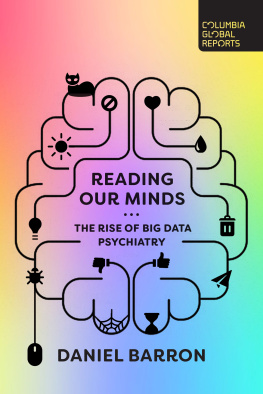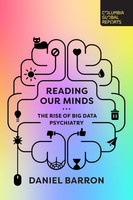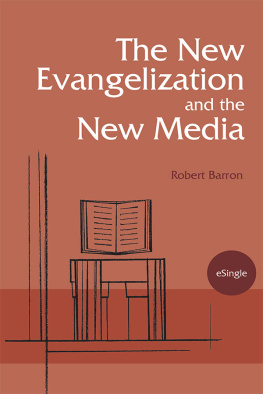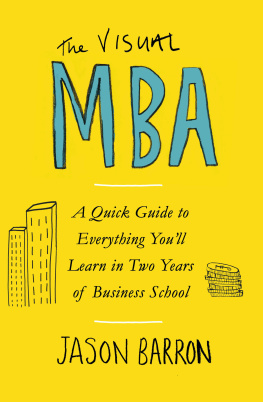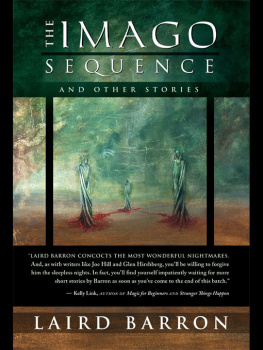Daniel Barron - Reading Our Minds
Here you can read online Daniel Barron - Reading Our Minds full text of the book (entire story) in english for free. Download pdf and epub, get meaning, cover and reviews about this ebook. year: 2021, publisher: Lightning Source Inc. (Tier 2), genre: Politics. Description of the work, (preface) as well as reviews are available. Best literature library LitArk.com created for fans of good reading and offers a wide selection of genres:
Romance novel
Science fiction
Adventure
Detective
Science
History
Home and family
Prose
Art
Politics
Computer
Non-fiction
Religion
Business
Children
Humor
Choose a favorite category and find really read worthwhile books. Enjoy immersion in the world of imagination, feel the emotions of the characters or learn something new for yourself, make an fascinating discovery.
- Book:Reading Our Minds
- Author:
- Publisher:Lightning Source Inc. (Tier 2)
- Genre:
- Year:2021
- Rating:5 / 5
- Favourites:Add to favourites
- Your mark:
- 100
- 1
- 2
- 3
- 4
- 5
Reading Our Minds: summary, description and annotation
We offer to read an annotation, description, summary or preface (depends on what the author of the book "Reading Our Minds" wrote himself). If you haven't found the necessary information about the book — write in the comments, we will try to find it.
Reading Our Minds — read online for free the complete book (whole text) full work
Below is the text of the book, divided by pages. System saving the place of the last page read, allows you to conveniently read the book "Reading Our Minds" online for free, without having to search again every time where you left off. Put a bookmark, and you can go to the page where you finished reading at any time.
Font size:
Interval:
Bookmark:

The Rise of Big Data Psychiatry
The Rise of Big Data Psychiatry
Daniel Barron



Support for this book was provided in part by the Robert Wood Johnson Foundation. The views expressed here do not necessarily reflect the views of the Foundation.
Reading Our Minds:
The Rise of Big Data Psychiatry
Copyright 2021 by Daniel Barron
All rights reserved
Published by Columbia Global Reports
91 Claremont Avenue, Suite 515
New York, NY 10027
globalreports.columbia.edu
facebook.com/columbiaglobalreports
@columbiaGR
Library of Congress Cataloging-in-Publication Data
Names: Barron, Daniel (Psychiatrist), author.
Title: Reading Our Minds: The Rise of Big Data Psychiatry / Daniel Barron.
Description: New York : Columbia Global Reports, [2021] | Includes bibliographical references.
Identifiers: LCCN 2020058016 (print) | LCCN 2020058017 (ebook) ISBN 9781734420784 (paperback) | ISBN 9781734420791 (ebook)
Subjects: LCSH: Psychiatry. | Mental illness--Diagnosis.
Classification: LCC RC435 .B37 2021 (print) | LCC RC435 (ebook) | DDC 616.89/075--dc23
LC record available at https://lccn.loc.gov/2020058016
LC ebook record available at https://lccn.loc.gov/2020058017
Book design by Strick&Williams
Map design by Jeffrey L. Ward
Author photograph by Daniel Berman
Printed in the United States of America
For Irene and her mother
Chapter One
Online Behavior: Search History and Social Media
Chapter Two
Passive Data: Accelerometer, Geolocation, Call Logs
Chapter Three
Conversational Data: What We Say and How We Say It
Chapter Four
Stress Tests for the Brain
Chapter Five
Diagnosis: Turning Data into Action
Chapter Six
Platforms: Gathering and Making Sense of Data
Its one oclock and a seventeen-year-old girl named Irene is sitting beside me in an exam room. Irene is wearing a teal crew neck sweater and cerise corduroys; her brunette hair calmly rests just below her shoulders. She sits with impeccable postureback straight, hands on her thighs, face calm and expressionless, staring at the wall in front of us. Irenes mother brought her to the hospital because she was having a psychosis episode.
Since we just met, its not yet clear whether Irene is psychotic. But as the admitting physician, its my job to find out. To do this, well discuss her clinical history and perform a mental status exam.
The mental status exam is a bedrock tool of a psychiatric assessment. It includes my observations of Irenes body language, speech, and expression in combination with her answers to specific questions about symptoms: what I see and hear paired with Irenes self-report.
Irene and I walk into an adjoining room to speak privately.
So, can you help me understand whats going on? I ask.
Over the last few months, its been harder and harder for me to concentrate, she begins. Her face remains expressionless; her eyes dont meet mine. I wonder if she is ignoring me or perhaps hallucinating, but she replies to my questions politely and quickly. Perhaps she is depressed or simply shy. She doesnt seem autistic.
She sleeps more and has lost interest in doing essentially everything. Instead she lies in bed all day. She broke up with her boyfriendwhom she tells me she previously lovedbecause, well, I was no longer interested.
Do you ever hear or see things that may not be there? Hear voices or see shadows? I ask. I remind myself to find a better way to ask if someone is hallucinating.
Oh, no, she says politely with a reserved shake of her head.
I move on to my standard series of screening questions for schizophrenia, depression, mania, OCD, trauma, and suicidebits Ive memorized from the DSM-5s diagnostic criteria. As we speak, I keep a mental tally of whether what shes telling me fits into one of these diagnostic bins. It doesnt. She doesnt use drugs, has no family history of mental illness, has always done well in school.
I shine a light in Irenes eyes to make sure her pupils constrictfirst the left side, then the right. I ask Irene to follow my finger with her eyes as I trace an H in front of her head and check that the muscles in her face can smile, frown, bare her teeth, squint, and so on. I test the strength, sensation, and reflexes in her arms and legs. I listen to her heart, lungs, and belly. Nothing seems amiss. Her blood pressure, heart rate, and electrocardiogram are equally normal. Throughout our conversation, Irene is more than calm and cooperative; she is graceful.
We return to speak with Irenes mother who tells me that, for the last year or two, Irene has been having psychosis episodes. Each episode, her mother describes with consternation, lasts two to three weeks; the episodes begin and end without rhyme or reason. During these times, she doesnt sleep but rather just lies in bed, has a warped sense of time, barely eats, and has full conversations with herself that can last an hour. The mother suggests that Irene laughs inappropriately, when no ones around or nothing seems funny.
I do not, Mom! Irene protests, breaking character by leaning forward over her legs with an unrestrained giggle. We fall silent: Her giggle is out of place during a psychiatric hospital admission.
Her mother describes Irenes shifting online obsessions: Spotify (Irene felt Spotify was creating playlists to send her messages), astrology (Irenes IP address was blocked from an astrology website for clicking too many pages per hour), and Urban Dictionary (she spends all day reading street slang looking for secret messages in the definitions).
Throughout our conversations, Im carefully observing Irene: how she sits, whether she moves or taps her foot, where she looks. I consider the types of words she uses and whether her ideas flow one to another. I notice how her facial expression and voice parallel our conversational topicis she sad when we speak about something sad? These all factor into my mental status exam.
I return to my workroom and, with the help of my electronic medical records template, enter my mental status exam for Irene:
Appearance: Neat/Clean
Behavior/Attitude: Cooperative, calm
Motor Activity: Hypoactive except, taps her right foot
Gait/Station: Normal
Speech: Normal rate, rhythm, volume, and tone
Mood: OK (this is how Irene described her mood)
Affect: Blunted affect. Laughing and lightheartedness, which were inappropriate for the context of our conversation.
Relatedness: Poor
Thought Process: Normal
Delusions: None
Suicidal Ideation: Denies
Suicidal Intentions: Denies
Suicidal Plan: Denies
Homicidal Ideation: Denies
Homicidal Intentions: Denies
Homicidal Plans: Denies
Perceptual Disturbances: Denies auditory and visual hallucinations
If my mental status exam seems subjective to you, I agree. But this is a standard mental status exam, so standard that to document it, I clicked a series of seventeen boxes within Irenes digital note, most simply a normal-or-no reply.
Font size:
Interval:
Bookmark:
Similar books «Reading Our Minds»
Look at similar books to Reading Our Minds. We have selected literature similar in name and meaning in the hope of providing readers with more options to find new, interesting, not yet read works.
Discussion, reviews of the book Reading Our Minds and just readers' own opinions. Leave your comments, write what you think about the work, its meaning or the main characters. Specify what exactly you liked and what you didn't like, and why you think so.

